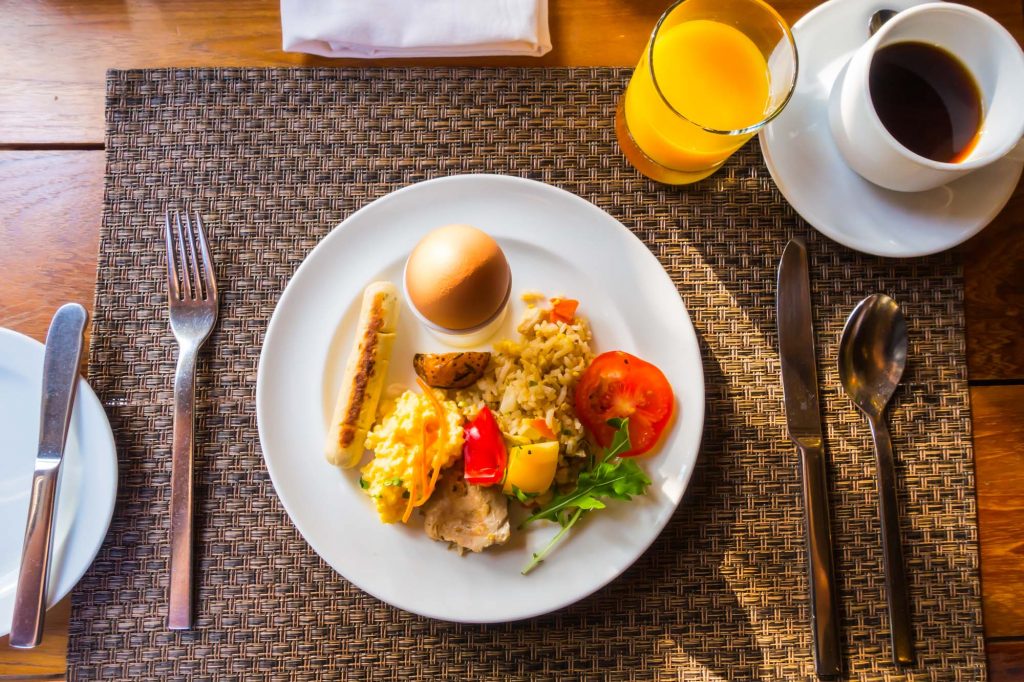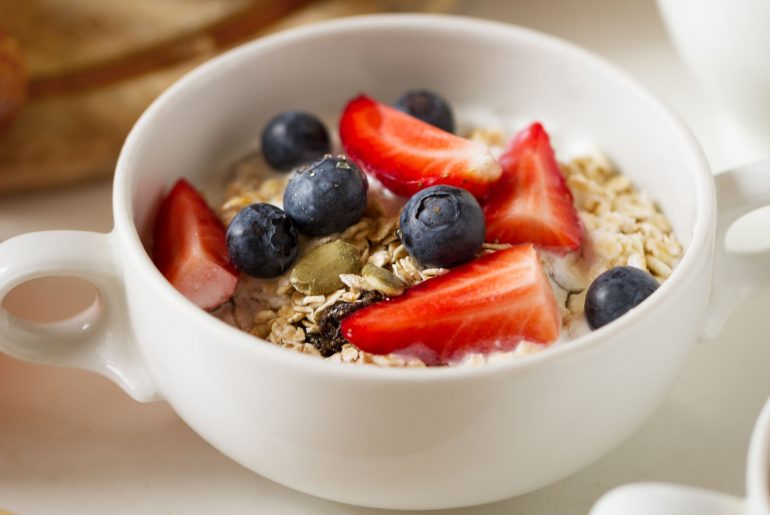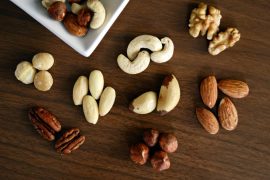The most important meal of the day.
There are dozens of good, science-based reasons to eat breakfast every morning. There’s also a common sense factor.
Realistically, if you don’t eat breakfast, it’s almost impossible to ingest all the vitamins and minerals and other nutrients you need to stay healthy within a 24 hour period.
I went to a restaurant that serves “breakfast at any time” so I ordered French toast during the Renaissance.STEPHEN WRIGHT, Comedian & Actor
Eating breakfast will also keep you slimmer throughout life, more energized throughout the day, less apt to reach for sugary snacks and less likely to have diabetes or heart disease.
At the Neuroscience 20121 conference, researchers from Imperial College London presented a fascinating study. For two days they scanned the brains of 21 people who were viewing pictures of many foods, from chocolate to salad, to see how attractive these foods appeared to them. They also measured the amount their subjects ate for lunch. On one day, the subjects ate breakfast, on another, they did not.
The study showed that when the study participants missed breakfast, they were much more attracted to high-calorie foods and they ate, on average, 250 more calories at lunch than they did when they had breakfast.

Is there a formula for what you should eat at breakfast to avoid hunger and high-calorie foods throughout the day? Turns out there is, according to experts at the Johns Hopkins Bloomberg School of Public Health.2
They advise you to make sure you take one selection from these three food groups:
- Fruit and vegetable (peach, pear, carrot stick)
- Dairy (yogurt or milk, select low-fat choice)
- Whole grains (bread, cereal, muffin, bagel)
If you are one of the legions of busy people who enjoy a great breakfast on weekends but can’t work it into weekday mornings, stock up to bring breakfast to your office. Granola bars, little tubs of yogurt, and whole grain muffins and a banana are all very portable.
If you insist on starting your day with coffee, try to also drink a glass of milk, water or a small glass of orange or grapefruit juice.
If breakfast isn’t part of your routine now, it doesn’t mean it can’t be in the future. By preparing foods in advance so you can quickly put it together, you can alter your routine by 15 minutes and head out your door well-nourished and ready for the day ahead.
You can save the home-made whole grain pancakes and fresh blueberries for a holiday, and just grab yogurt and an apple, and still be better off than with nothing at all. Or make a pot of oatmeal the night before and microwave it to eat it hot in the morning.
Avoid traditional breakfast meats like bacon and sausages on a daily basis because of their high saturated fat and salt content.
For more straightforward and useful evidence- based health advice, consult: www.goodfoodtalking.com
Sources:
- Neuroscience 2012 – http://am2012.sfn.org/am2012/
- Johns Hopkins Bloomberg School of Public Health
http://www.jhsph.edu/offices-and-services/student-affairs/_documents/Breakfast





